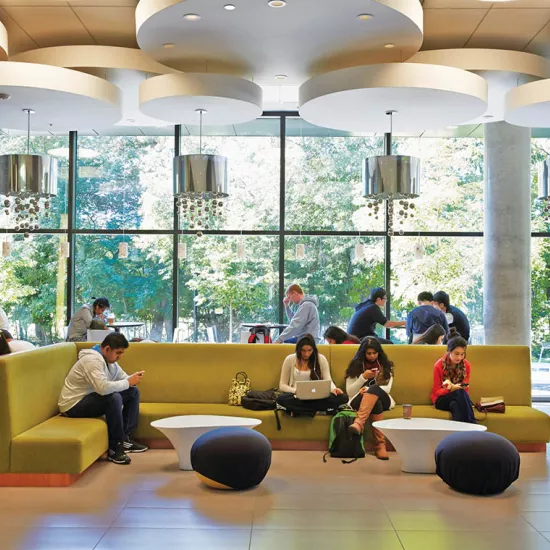Why Study Linguistics?
Linguistics is the scientific study of language, and the field is very broad, encompassing topics such as the internal structure of language, how infants and adults learn language(s), how language is used to express identity, and commonalities and differences among speakers of the world. Studying Linguistics at UTM opens the door to exploration of how language intersects with many fundamental aspects of human existence:
- Cognition: What is the nature of the unconscious knowledge we have about language, and how is it represented in the mind?
- Communication: How do we use language to construct meaning, relay messages, and convey identity?
- Human development: How is language acquired across different ages and contexts, and how does it change across the lifespan?
- Social dynamics: How do language and language attitudes shape our interaction with, and perception of, others?
- Variation and change: What is the range of variation of linguistic structures across languages, communities, and individuals? How and why does language change over time?
- Technology: How can our understanding of language inform technology like speech recognition, artificial intelligence, and speech synthesis, and vice versa?
The Department of Language Studies at UTM offers three programs in Linguistic Studies:
- Major program in Linguistic Studies (ERMAJ1850)
- Minor program in Linguistic Studies (ERMIN0506)
- Minor program in English Language Linguistics (ERMIN1200)
Courses in these programs aim to provide:
- a solid foundation in the core theoretical fields of linguistics, covering the structure of sounds, words, sentences, and meaning;
- a wide variety of courses in areas such as language variation and change, experimental linguistics, first and second language acquisition, language documentation, psycholinguistics, language teaching and learning, and computational linguistics; and
- a multifaceted approach to the study of language, incorporating theoretical, experimental, and socially-informed perspectives, as well as links to related disciplines.
As of Fall 2024, we also offer a Certificate in Computational Linguistics (ERCER2021).
Linguistic Studies can be the first step along the path to numerous opportunities:
Studies in linguistics can lead to diverse career paths, particularly in a multilingual country like Canada. Along with providing a foundation for future research and graduate studies in linguistics or related fields, the specific knowledge and skills acquired in linguistics courses are particularly relevant for areas including:
- Teaching and pedagogy (language teaching, teacher education, educational research)
- Clinical applications (speech therapy, audiology)
- Language documentation and revitalization
- Communications (publishing, advertising, marketing/branding)
- Language technology (speech recognition, natural language processing, computer mediated language learning)




